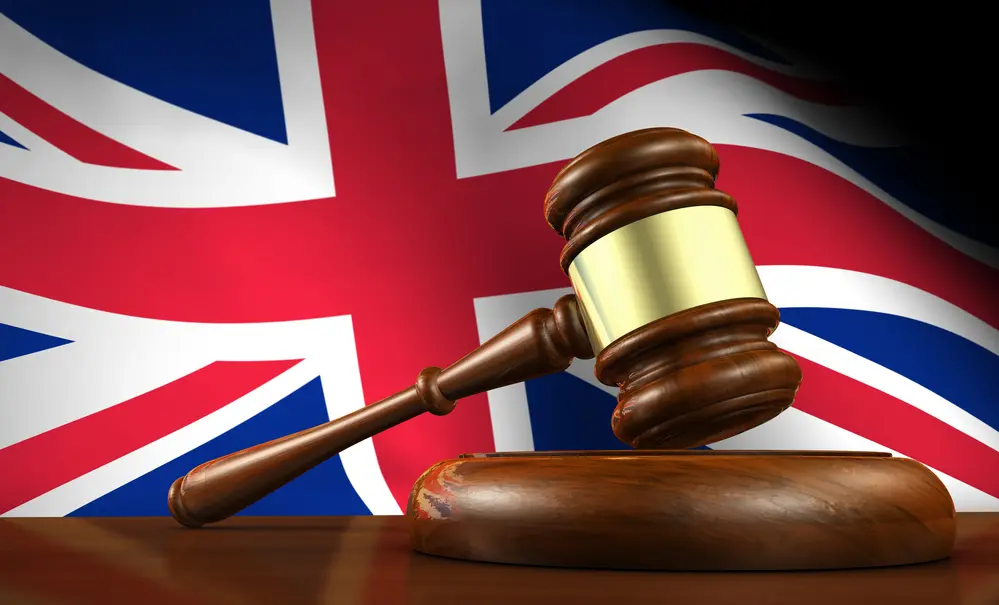You can petition or respond to a UK divorce even if you live in Europe as long as you satisfy certain criteria. Brexit is not a barrier, although the rules have changed somewhat.
Divorcing entirely online is an extremely practical way of solving the distance and time zone issues.
UK courts are often favoured for divorces amongst British expat or mixed nationality marriages due to how ‘fair’ the decisions are considered. This generally means that the financially weaker spouse will obtain a greater financial claim than if the divorce happened in Europe.
If you feel that you are more likely to lose money in a settlement then it is important to ask for legal advice. This is where an experienced solicitor can discuss the particulars of your case and how it would normally be handled in an English or Welsh court.
What Do I Need To Get A UK Divorce?
There has to be a significant connection between the couple and the UK to be eligible for a UK divorce. One or both parties will need to prove that they are “habitually resident” or “domiciled” in the UK.
- Both parties have been habitually resident in the UK and one still is.
- The petitioner of the divorce proceedings has been habitually resident in the UK for at least 6 months.
- The receiving party is habitually resident in the UK.
- Both parties are domiciled in the UK.
What Does “Habitual Residence” Mean?
There actually is no precise definition of habitually resident due to how complex the concept is. It is the country that you spend/have spent the majority of your time in or have sufficient connection to.
It is up to the court to define whether your case qualifies.
There are a number of common factors that could be taken into account by a court to demonstrate your habitual residence:
- Speaking a UK national language
- Length of time in the country
- How regularly they visit the UK
- Is the family home in the UK
- Where the person is employed
- Where the person was educated
- Financial arrangements such as banking or pension
- Do the children live/are schooled in the UK
- Owning UK property
- Residency status
- Reasons for being in the country
- Integration within UK society
If you cannot establish habitual residence then you could try domiciled.
What Does “Domiciled” Mean?
There are two types of domiciled, “domicile of origin” and “domicile of choice”. Both are used to effectively link a person to a national legal system.
Your domicile of origin comes from where your parents lived when you were born.
Your domicile of choice comes from where you are currently resident and your ability to prove that you intend to live there permanently.
Therefore you need to show that you choose the UK legal system over other countries for the rest of your life. If you then move away from the UK you will still be domiciled there if your intention is to return.
British couples living abroad will still be domiciled in England, Scotland or Wales. Gaining foreign citizenship will change your domicile status.
Has Brexit Changed UK Divorces For Europe?
Brexit has changed a number of things in how UK divorces relate to the European Union and visa versa. In some ways the UK has reverted to dealing with some EU states in the same way as it would with non EU states.
However in other ways Brexit has simply left a legal grey area which will need to be either filled in by government legislation as things progress or it will need to be argued out in the courts.
The more complex the divorce is in terms of finances, child arrangements and mixed nationality; the more likely there is to be conflict between international divorce courts.
Jurisdiction
Brexit has had a significant affect on which country has jurisdiction over the divorce process. Previously the first legal system that received the divorce petition is usually the one that deals with it.
Now it is expected that there will be lengthy and costly disputes over which country has jurisdiction, duplicated proceedings and rulings that cannot be reconciled.
Being the first to petition in the country of your choice could still very important to you getting the legal system that would be the most beneficial. This is due to the fact that if divorce proceedings are already started in another country then another court will be less likely to argue over jurisdiction without a strong reason to do so.
Recognition
Recognition of a divorce means that other states recognise that divorce based on the correct legal process of the country in which the divorce was performed. Therefore a divorce in the UK would still be considered a legal divorce in France even though the divorce laws differ in the two countries.
In the EU divorces are recognised under the
Brussels 11A but the UK government has repealed that after Brexit. This leaves international recognition a grey area for the time being.
The alternative is the
Hague 1970 divorce recognition convention which centres around the nationality or residence of one or both of the spouses. This has 20 states currently signed up to it of which the UK is one. However only 12 of those are to the convention are EU states:
- Albania
- Australia
- Hong Kong
- Cyprus (EU)
- Czech Republic (EU)
- Denmark (EU)
- Egypt
- Estonia (EU)
- Finland (EU)
- Italy (EU)
- Luxembourg (EU)
- Moldova
- Netherlands (EU)
- Norway
- Poland (EU)
- Portugal (EU)
- Slovakia (EU)
- Sweden (EU)
- Switzerland
- UK
This leaves 15 EU states without official recognition of UK divorces and therefore might apply their own laws to a parallel divorce taking place in two countries at once.
You will need to seek international legal advice on how to get your divorce recognised under these circumstances as you will have to apply for your Certificate of Recognition in the individual country required.
This does not mean that every divorce will be conflicted though. It is expected that the majority will be awarded to the state which the couple are most connected to by the courts.
What Divorce Options Are Open To Me?
Due to the complexity of getting a UK divorce from Europe some of the simpler and cheaper divorce options will not be appropriate.
Whilst it will still be possible to obtain a divorce online certain options such as a DIY Divorce would not be suitable for your needs.
Petitioning for an uncontested divorce will save a great deal of time and money if it is possible. An
online managed divorce would be suitable and convenient.
Contested divorces are an order of measure more complicated than uncontested and adding the issues of a divorce from abroad will result in scaling costs.
If the divorce has to be contested then you will need to seek legal advice.

